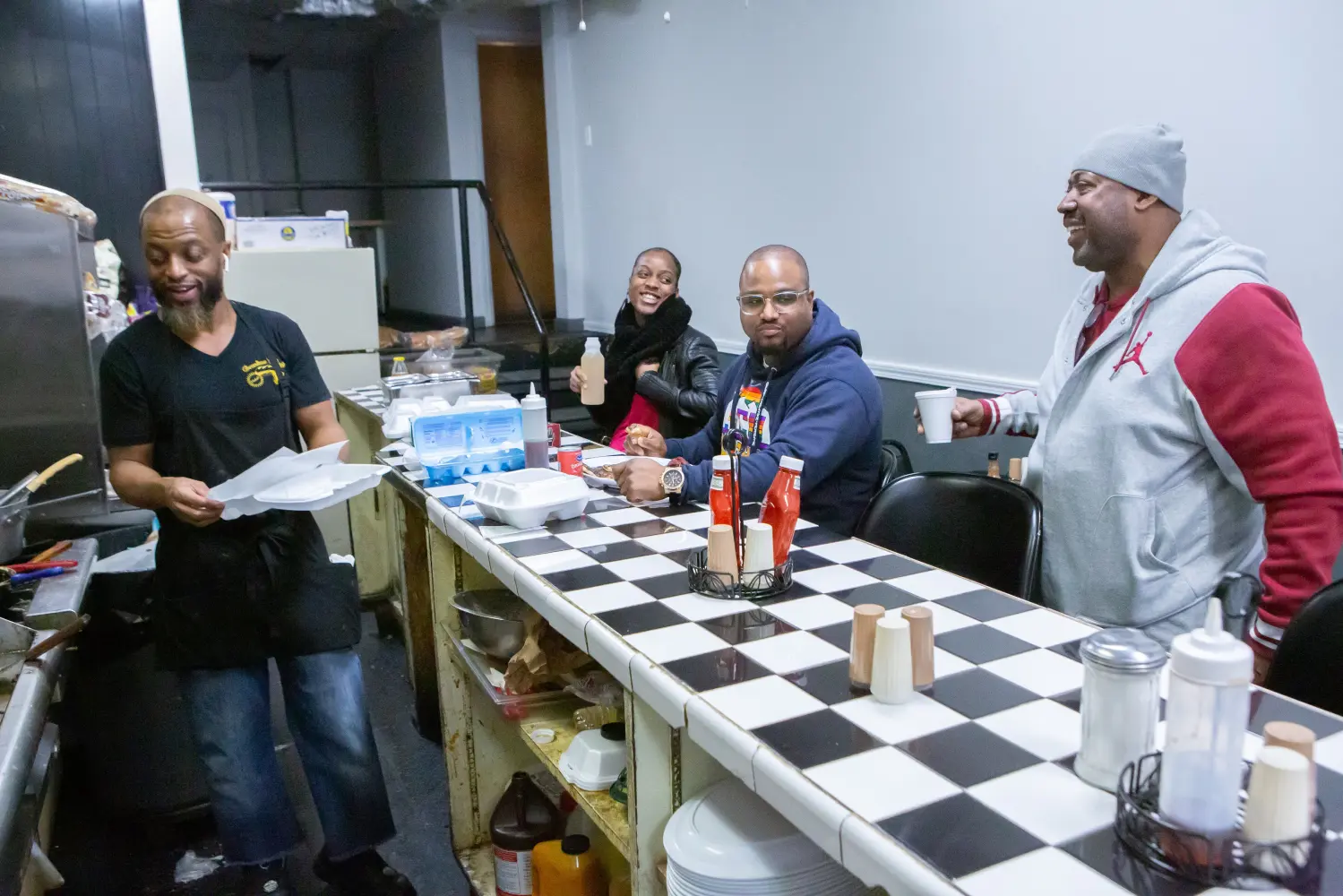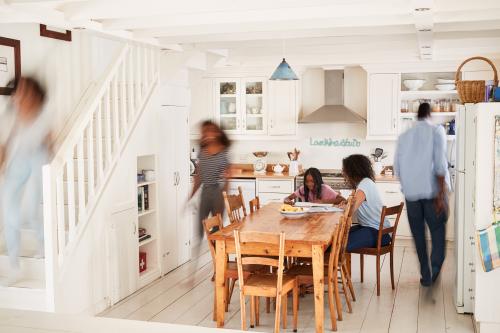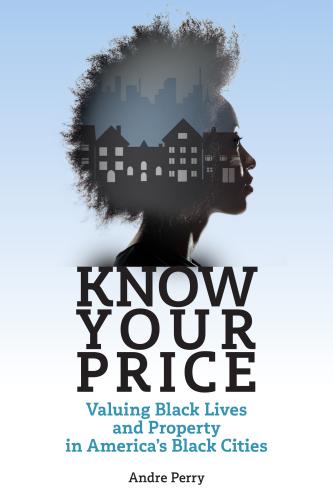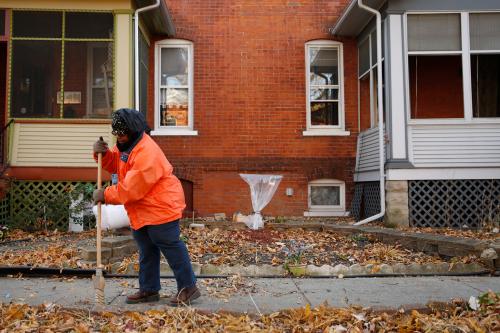On February 19, Brookings hosted an event discussing the report. Watch the video.
“Our ice is just as cold.” This expression, heard in corners of Black neighborhoods to articulate the choice between a Black-owned business and a white one, reminds customers that racism distorts our sense of quality. In a more perfect union, profits earned from a business would reflect the effort and labor put into it. The drag of racism on an economy not only cuts into individual owners’ profits, it robs local consumers and municipalities of the amenities and services neighborhoods gain from increased revenues. Further, a biased market cuts into the heart of the American Dream by negating the hard work, agency, and self-determination of business owners.
Research on small business outcomes finds that location matters. However, in the United States, residential segregation patterns by race have created peculiar neighborhood conditions for businesses to work within. To better understand how consumer-oriented markets work in Black neighborhoods, this report studies the financial performance and customer ratings of private enterprises across ZIP codes in 86 metropolitan areas across the country with large Black populations, and is part of a larger project to understand how assets are valued (and undervalued) in America’s Black neighborhoods.
Among other important findings, the report finds that highly-rated businesses in Black-majority neighborhoods experience annual losses in business revenue as high as $3.9 billion. The report’s methodology matches Yelp data at the establishment level to financial performance data from the National Establishment Time-Series (NETS) Database.
Black people represent 12.7% of the U.S. population but only 4.3% of the nation’s 22.2 million business owners.
“[Black entrepreneurs] may have the idea, but we just sit on it because we don’t have the capital. – Dorian Moorefield, owner, Grandma B’s restaurant”
Black-owned businesses start with approximately a third less capital than their white peers and have difficulties raising private investments from mainstream investment systems. Only 1% of Black business owners obtain loans in their founding year, compared to 7% of white business owners.
These financial realities are in contrast to our research showing that minority-owned businesses receive customer reviews that are just as high as nonminority-owned businesses.
Untapped entrepreneurial potential abounds in Black communities throughout the country
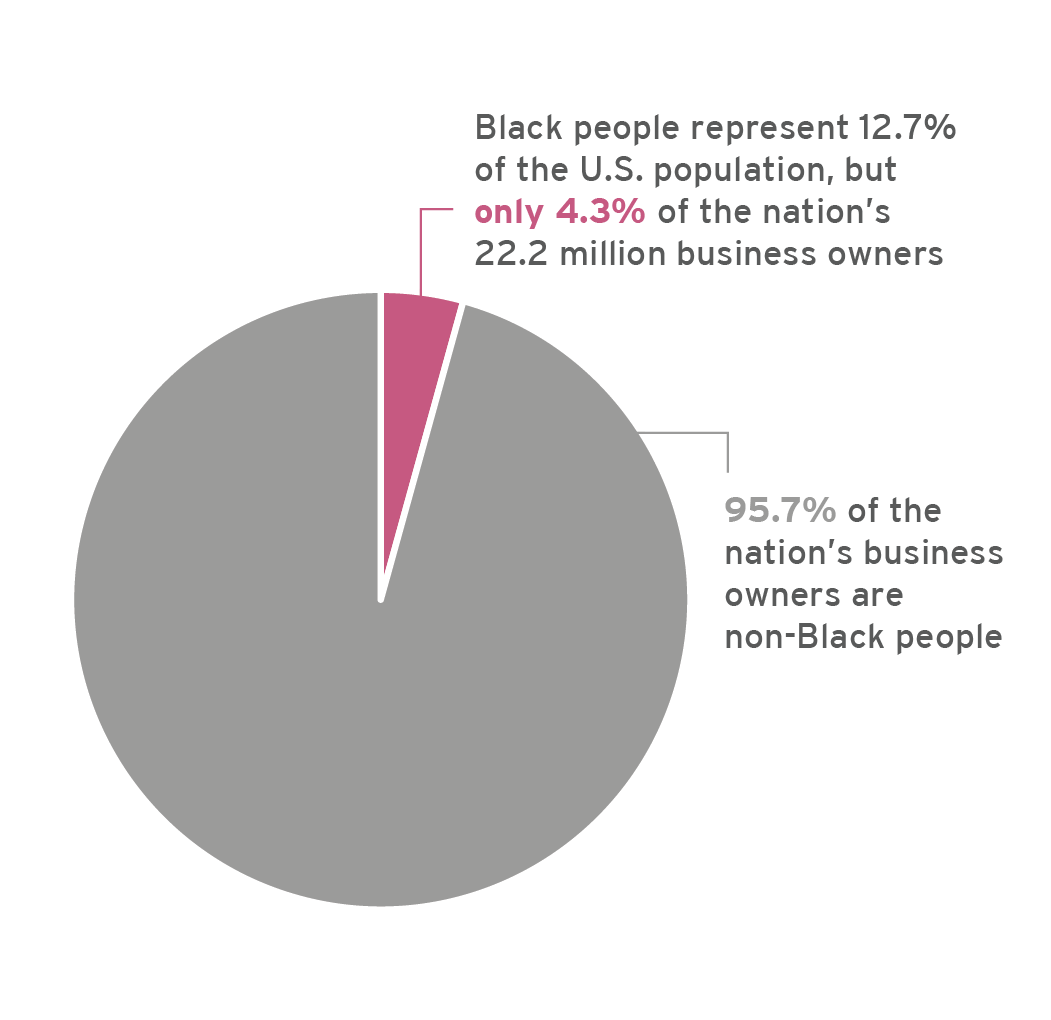
Brookings and Gallup analysis
Businesses with higher consumer ratings on Yelp or a larger number of reviews experience faster revenue growth.
“We don’t cook for reviews per se; We try to cook every dish to perfection. If that’s the case the reviews will come.”
We estimate that a one-star increase in Yelp reviews predicts an increase in revenue growth of 1 to 2 percentage points over a three-year period. Moreover, we find that for every 10 reviews a business receives, it experiences an additional 2 percentage points of revenue growth on average, regardless of the quality of the reviews.
Businesses with four to five stars on Yelp experienced an average growth rate of 8.8% from 2016 to 2019. This compares to growth of just 6.2% for businesses with fewer than four stars.
Businesses with higher Yelp ratings enjoy faster revenue growth
Yelp sample of businesses in ZIP codes across 86 metro areas, 2016–2019

Source: Author analysis of merged data from Yelp and National Establishment Time-Series (NETS) Database.
Businesses with more Yelp ratings experience faster revenue growth
Yelp sample of businesses in ZIP codes across 86 metro areas, 2016–2019

Note: Businesses with a single Yelp review were removed from the sample before analysis. Groupings of Yelp reviews represent quintiles. Source: Author analysis of merged data from Yelp and National Establishment Time-Series (NETS) Database.
Businesses in Black-majority neighborhoods receive lower Yelp ratings and fewer reviews than other businesses.
“I’m very picky…I try to cook for people like me.”
Businesses in Black neighborhoods receive lower ratings from customers and less attention. The number of reviews per business sharply falls as the ZIP code’s Black population increases. This effect is independent of whether the store is owned by a white person or a minority. Businesses in neighborhoods with very few Black residents receive twice as many reviews as businesses in neighborhoods that are almost entirely made up of Black residents.
Businesses in Black neighborhoods receive lower Yelp ratings than others
Yelp sample of businesses in ZIP codes across 86 metro areas, 2016–2019

Source: Author analysis of Yelp data and 2017 American Community Survey estimates.
Businesses in Black neighborhoods receive fewer Yelp reviews than others
Yelp sample of businesses in ZIP codes across 86 metro areas, 2016–2019
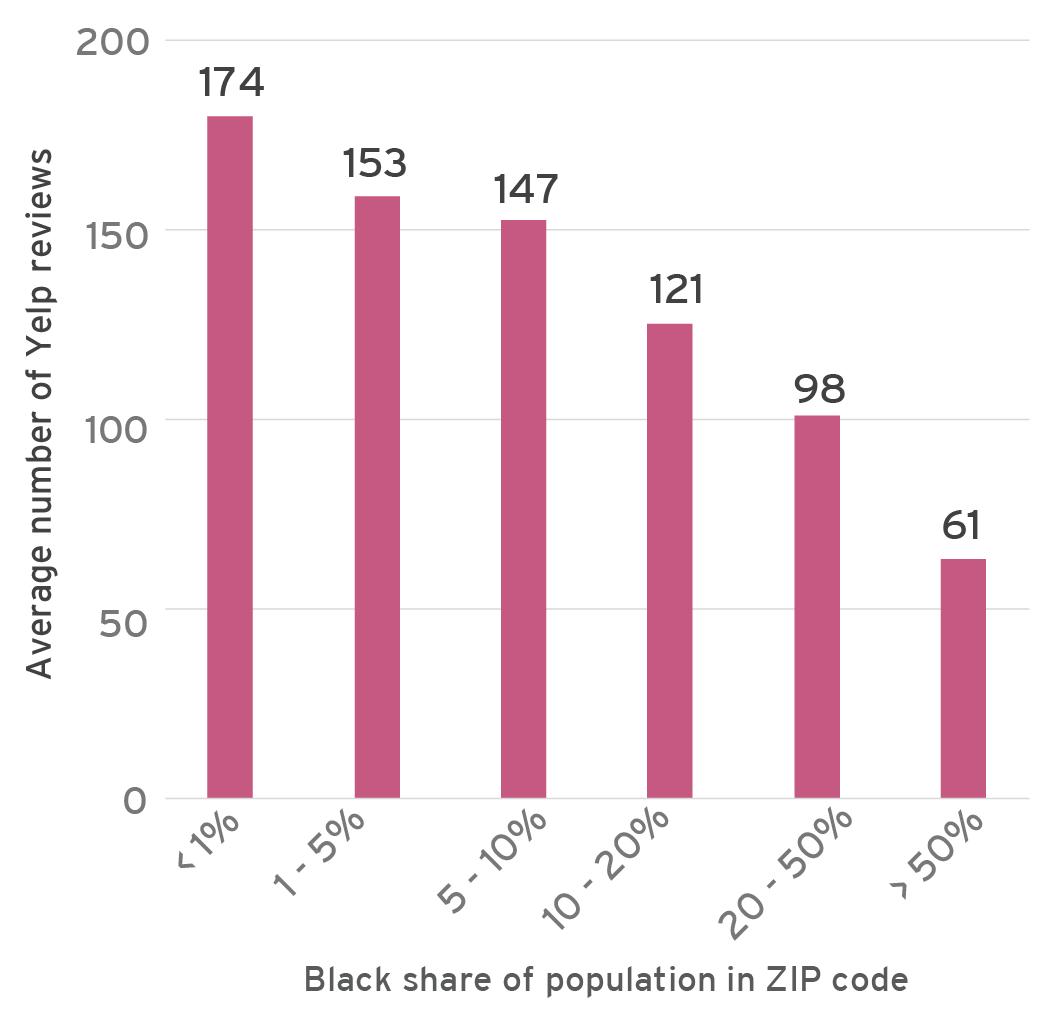
Source: Author analysis of merged data from Yelp and National Establishment Time-Series (NETS) Database.
Highly rated businesses located in Black neighborhoods earn less revenue than businesses with similar quality ratings outside of Black neighborhoods.
“We’re trying to dispel those myths…those old realities…the stigma just won’t go away.”
In non-Black-majority neighborhoods, businesses with high Yelp ratings grew, on average, between 8.5% and 9% between 2016 and 2019, and poorly rated businesses grew significantly less (between 5% and 7.5%). In Black-majority neighborhoods, 7% growth was the norm for both highly rated and poorly rated businesses. Location in Black-majority neighborhoods eliminates the benefit of being a highly rated establishment.
This effect persists after controlling for other neighborhood characteristics such as the level of education of residents, total income in the ZIP code, average commute times to work, and the age of the housing stock. Providing high-quality customer service and products does not result in financial rewards in Black neighborhoods to the same extent as in other neighborhoods.
Locating in a Black-majority neighborhood eliminates the advantage of being a highly rated business
Yelp sample of businesses in ZIP codes across 86 metro areas, 2016–2019

Note: Low Yelp ratings are defined as below 4.0. High Yelp ratings are defined as 4.0 and higher. Source: Author analysis of merged data from Yelp and National Establishment Time-Series (NETS) Database and 2017 American Community Survey estimates.
Highly-rated businesses in Black-majority neighborhoods experience annual losses in business revenue as high as $3.9 billion.
“I’ve learned that a great location will out do great food.”
In Black-majority neighborhoods, poorly rated establishments grow at roughly the same low rate as highly rated establishments—and both perform worse than poorly rated businesses in neighborhoods which are less than 1% Black. When all factors are included, the full model of our research suggests a 0.2% percentage point gap between businesses in non-Black-majority neighborhoods and Black-majority neighborhoods, amounting to $1.3 billion in unrealized revenue each year. This gap jumps to $3.9 billion when comparing highly-rated businesses in Black-majority neighborhoods with highly-rated businesses in other neighborhoods.
Businesses in Black-majority neighborhoods lose $1.3B to $3.9B in revenue per year

Brookings and Gallup analysis
Conclusion
To live out our democratic ideals and to achieve racial equity in the United States, institutions and markets critical to capital flows must give equal access to Black people. Historic discrimination distorts how we value Black people and the assets in Black communities, robbing them of the ability to lift themselves up the social ladder and build stronger neighborhoods. Negative perceptions that are shaped by racism put drags on markets that hurt Black people and the communities they live in.
In this report, we found evidence that racial discrimination distorts local customer-facing firms in ways that harm business owners and the Black-majority neighborhoods in which they sit. Our finding that even high-performing businesses receive less attention from Yelp reviewers and experience slower revenue growth means that the potential for wealth creation through entrepreneurship is hampered by a dim view of Black neighborhoods.
While the national patterns in Yelp reviews play out differently across metropolitan areas, there are practical things that cities and local governments can do to counteract the devaluation of businesses in Black communities. They should invest in city infrastructure near highly rated businesses in Black neighborhoods and provide creative financing solutions for commercial spaces in Black neighborhoods. Local governments should partner with businesses, real estate developers, and building owners to incentivize the renovation of business facades and buildings and ensure that unnecessary bureaucratic and zoning restrictions are removed.
Fundamentally, we must find ways to restore the value of Black neighborhoods themselves, which has been reduced by racism. The economy, and its people, stand to gain from anti-discrimination, anti-racist policies that increases capital flow to businesses in Black neighborhoods.
Special thanks to the owner of Grandma B’s restaurant, Dorian Moorefield.
Photos provided by Brian Cook.



